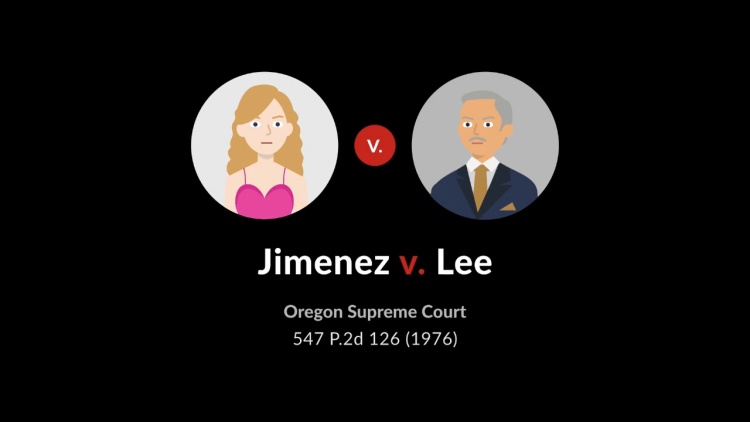Jimenez v. Lee
Oregon Supreme Court
547 P.2d 126 (1976)

- Written by Christine Raino, JD
Facts
While Elizabeth Lee (plaintiff) was a minor, her paternal grandmother purchased a $1,000-face-value E-bond that was to be used for Elizabeth’s educational needs. Mrs. Adolph Diercks, a client of Elizabeth’s father, Jason Lee (defendant), also made a gift of $500 that was to be used for Elizabeth’s education. The bond was registered in both Elizabeth’s and her parents’ names, and the $500 were placed in a savings account in Jason’s name and the names of his three children, who all received similar gifts from Diercks. Jason later cashed in the savings bond and withdrew the funds from the savings account. He invested $1,000 of the savings-account balance and all of the proceeds from sale of the bond in shares of Commercial Bank of Salem stock. He registered the stock in his name as “custodian” for Elizabeth and his other children. Elizabeth brought an action against her father to compel him to account for the funds, which she claimed were held by Jason in trust for her. The evidence showed that Jason, a lawyer, had written to his mother stating that he held $1,000 E-bonds “in trust” for Elizabeth and her brother, Dave. The parties did not dispute that the $1,000 bond and the $500 gift from Diercks were intended to be used for Elizabeth’s education. The evidence also showed that Jason did not keep separate records of expenditures he made from the funds held for Elizabeth or income earned on those assets. Jason did offer a summary of expenditures he made, including ballet lessons, a subscription to a ballet magazine, and tickets for himself and other family members to attend ballet performances. The trial court dismissed Elizabeth’s claim, finding that Jason held the E-bond and $500 gift as custodian under the Uniform Gift to Minors Act and not as trustee. Elizabeth appealed.
Rule of Law
Issue
Holding and Reasoning (O’Connell, C.J.)
What to do next…
Here's why 907,000 law students have relied on our case briefs:
- Written by law professors and practitioners, not other law students. 47,100 briefs, keyed to 996 casebooks. Top-notch customer support.
- The right amount of information, includes the facts, issues, rule of law, holding and reasoning, and any concurrences and dissents.
- Access in your classes, works on your mobile and tablet. Massive library of related video lessons and high quality multiple-choice questions.
- Easy to use, uniform format for every case brief. Written in plain English, not in legalese. Our briefs summarize and simplify; they don’t just repeat the court’s language.





